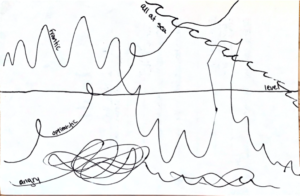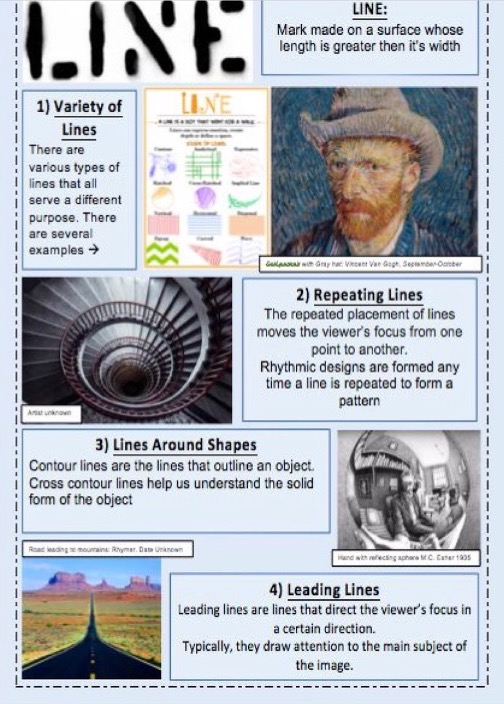Lines Have Feelings

Pastel Batik

Materials:
- Chalk
- Oil Pastels
- Construction paper
- Plastic bags
- Access to sink
Directions: Utilise at least 3 types of lines that you or someone at the table has created, or that you think up: zigzag, swirling, horizontal, vertical, dotted, widening and narrowing, etc. Name some for the students. They will choose a colour of construction paper that they like then draw their lines with sidewalk chalk. As with the crayon lines, the next step involves varying the thickness of some lines to make them more expressive. Now look at the image you have created. Does it look calm and peaceful, energetic, playful, earthy? How can you use colours to enhance this feeling? For example, green paper with brown, orange and blue-green will look more earthy and black paper with white and red will look bold and dramatic. Have students lay out some oil pastels on top of their paper and guess each others’ ideas for the feelings of their piece. When comfortable, students will colour all the areas not covered with chalk. When done, check with teacher to make sure all areas are covered and put the piece flat down in the sink. Run cold water over it and rub the chalk lines with your hand to get rid of all of the chalk. Magically the colour of the paper appears and makes the artwork glow. Dry flat on opened plastic bags so the ink from the paper doesn’t stain the counter.
Method: For my piece I knew reading over the instructions that I wanted to play with different types of lines. I chose to do one simple curved line, a dotted line, and a line of crosses. Because of the time consumed with colouring around each line and to emphasise the detail I used only three colours. To make the colours stand out even more I chose to use grey, white, and a beautiful mustard yellow in the oil pastel kit. The piece of music I listened to for the entire time working on this piece was ‘Gizeh’ by Oskar Schuster.
Artist






